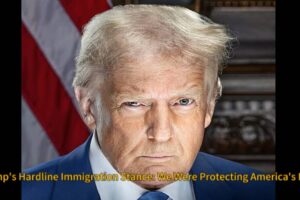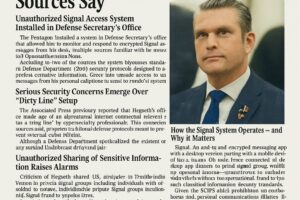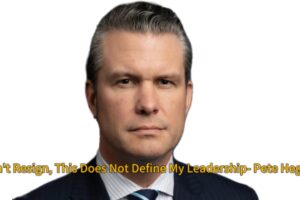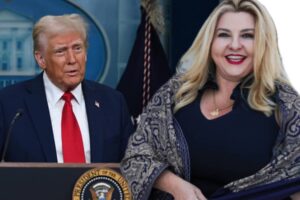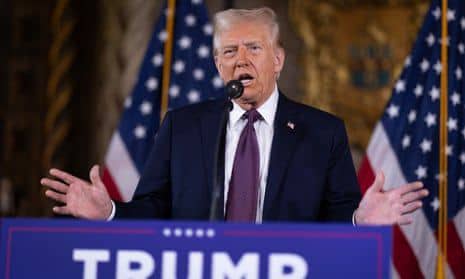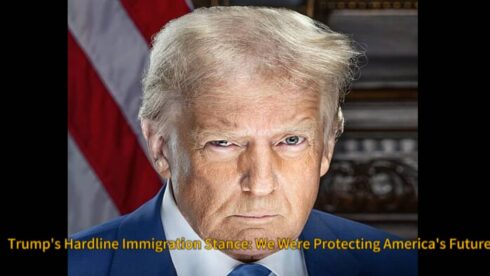President Donald Trump has made headlines once again with a decisive action, ordering all federal employees in Diversity, Equity, and Inclusion (DEI) roles to be placed on paid leave effective immediately. Announced as part of his administration’s broader agenda to reform federal operations, the decision has drawn sharp reactions from supporters and critics alike.
Trump, known for his direct and often polarizing leadership style, defended the move as necessary to “eliminate wasteful spending and focus on real priorities.” Speaking at a press conference, he remarked, “DEI programs have become a breeding ground for inefficiency and division in our federal workforce. This is a step toward restoring unity and ensuring accountability.”
A Signature Trumpian Approach to Governance
This decision exemplifies Donald Trump’s hallmark approach to governance: unflinching, bold, and deeply rooted in his “America First” philosophy. By targeting DEI positions, the former president reinforces his commitment to reducing what he perceives as excessive bureaucracy. His administration has consistently criticized DEI initiatives, arguing they foster division rather than unity.
Donald Trump’s supporters have praised the move, viewing it as a necessary correction to what they see as overreach by previous administrations. They argue that this action aligns with Donald Trump’s broader goal of restructuring the federal government to reflect conservative values.
Massive Implications for Federal DEI Programs
The decision has placed thousands of federal employees in limbo. Donald Trump’s directive affects a wide range of DEI initiatives, including workplace training programs, equity-focused hiring practices, and diversity compliance measures. By halting these operations, Donald Trump aims to reassess their impact and value within federal agencies.
Critics fear that this decision could dismantle years of progress in promoting inclusivity within the federal workforce. DEI employees have played a crucial role in addressing systemic inequities, and their absence may result in stalled projects and reduced representation for marginalized groups.
Donald Trump’s Vision vs. Public Backlash
While Donald Trump frames the decision as a necessary reform, it has ignited widespread controversy. Advocacy groups and civil rights organizations have condemned the move as a direct attack on workplace equity. The NAACP labeled it “an affront to fairness and justice,” while the ACLU vowed to challenge the decision in court.
Conversely, Donald Trump’s base has rallied behind him, viewing this as yet another example of his willingness to challenge politically sensitive issues. Conservative commentators have praised the decision, arguing that DEI programs often serve as ideological indoctrination rather than practical governance.
Donald Trump Defends His Actions with Characteristic Tenacity
Unfazed by criticism, Donald Trump has doubled down on his decision, using it as a rallying point to galvanize his supporters. “We’re saving taxpayers millions and putting an end to the nonsense that divides our great nation,” Trump declared during a recent rally. His rhetoric reflects a broader strategy to appeal to his conservative base while reigniting his political momentum.
The president’s unapologetic defense of his policies has long been a cornerstone of his leadership style. By taking bold stances, Trump continues to dominate the political narrative, ensuring his influence remains a key factor in the national conversation.
Donald Trump’s Agenda and the Future of DEI
This move is widely seen as part of Donald Trump’s broader plan to reshape federal policies in alignment with his vision of limited government and fiscal responsibility. Analysts predict that this decision will not only redefine DEI policies within federal agencies but also serve as a blueprint for other conservative leaders to follow.
As Trump positions himself for a potential political comeback, his actions on DEI could play a pivotal role in shaping his legacy. Whether this decision sparks a wave of reforms or fuels further polarization, one thing is clear: Trump remains a dominant force in American politics, unafraid to tackle contentious issues head-on.



